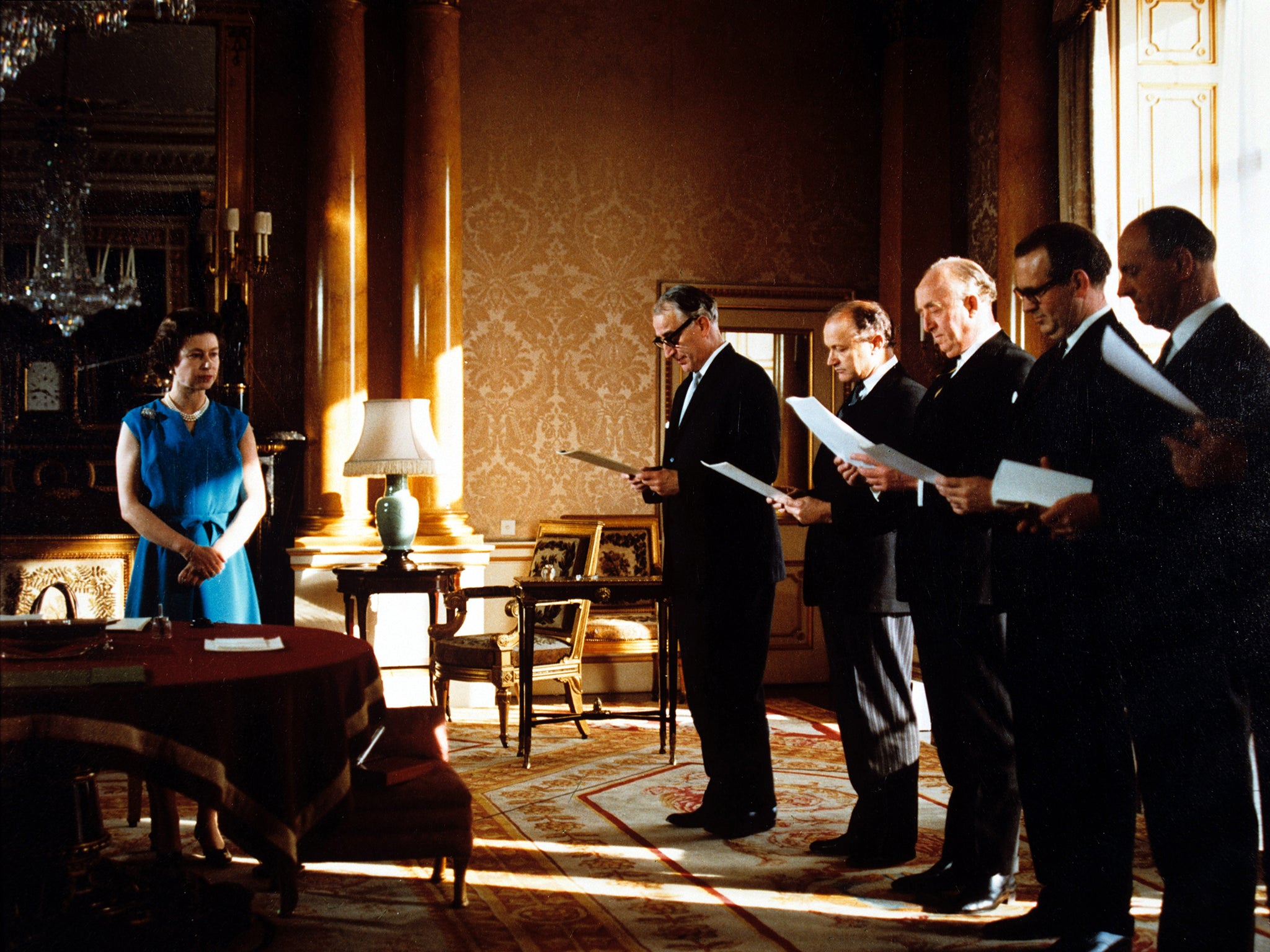The Privy Council is an elitist throwback to a time before democracy
If kneeling down and kissing the Queen's hand is the only way to be a 'serious politician', then we should be seriously reconsidering why we have the Council

Despite rumblings to the contrary, the Labour Party has just confirmed that Jeremy Corbyn will join the Queen's Privy Council. The Council is made up of around 600 mostly political figures (such as current and former members of the Commons and Lords), who come together to advise our monarch on the governance of the UK.
For Corbyn, the main purpose of joining is to receive national security briefings that will help him do his job as leader of the opposition. But there's a catch. To join, Corbyn – a lifelong republican – would have to bend down on one knee, kiss the Queen's hand, and swears an oath of alleigance to her.
The ceremony was meant to take place on Thursday, but Corbyn decided not to go, citing a schedule clash. This was met with outrage from the right-wing press, who ignored the fact that David Cameron did exactly the same thing in 2006. The Daily Mail slammed his decision, with a piece headlined “Fury as Corbyn snubs the Queen... to go on HOLIDAY”. Accoridng to the Tory MP Sir Alan Duncan, who is quoted in the piece, 'this is not so much about snubs, insults or ceremonies, it is more about whether Jeremy Corbyn wants to be a serious political figure or just a perpetual rebel.'
If joining the Privy Council and kneeling in front of the Queen is the only way to be a “serious politician”, then we should be seriously reconsidering why we have it. It dates all the way back to the 14th century, and you can tell. As well as all the kneeling and kissing, anyone joining the council has to state that they will to defend the Queen against “all foreign princes, persons, prelates, states or potentates”. It's made up of unelected and members who have made pledges to secrecy, and can put forward laws without parliamentary scrutiny. The workings of the council are often understated by its members, and dismissed as being purely routine, but it's difficult to see it as anything other than an elitist, out-of-date institution that has no place in 2015.
The Council is a continual reminder that our monarch has far more sway over our political system than we're led to believe. For some reason, it gives The Queen the power to veto bills in Parliament, and the secrecy that surrounds its proceedings makes it very difficult to find out what it's doing. In 2009, the barrister Patrick O'Connor QC wrote a report on the the Council, describing the Council as an institution that "exercises considerable power, yet is a dysfunctional relic of an outdated culture of deference“. On the council's ability to create laws without Parliament, he wrote:
“This is a problem of real substance, well beyond mere harmless and quaint ceremonial. It is surely a loophole in our constitutional safety net – a way in which hard law can be directly created, affecting fundamental rights, whilst bypassing Parliament and any prior accountability. The very same issue was a matter of controversy between the Tudor Kings and their courts and Parliaments. This battle between autocracy and democracy was won by Parliament over 450 years ago. Has this victory now been ceded by default?”
This may sound like its overstating the Council's legislative role and power over governments. But as has been pointed out, O'Connor's question is not hypothetical. In 2004, the Council overturned the Labour government's decision to allow the inhabitants of Asia's Chagos Islands to finally return home after their land was colonised and depopulated by the British during the 1960s.
In an age of austerity, where the Tory's are telling people to tighten their belts, the fact that we have a Queen who is paid millions of pounds to wield an undemocratic level of power over us is an insult. It's yet another example how British society takes from the poor and gives to the rich. Jack Straw, the former Justice Minister, once went as far as to say that the council “has no place in a Western democracy”. The best way to address this is probabaly to abolish the monarchy, although it doesn't look like that's going to happen anytime soon. But we can at least start to recognise how out-of-date the Queen's Privy Council is, and make it even more a thing of the past by getting rid of it.
Join our commenting forum
Join thought-provoking conversations, follow other Independent readers and see their replies
Comments
Bookmark popover
Removed from bookmarks